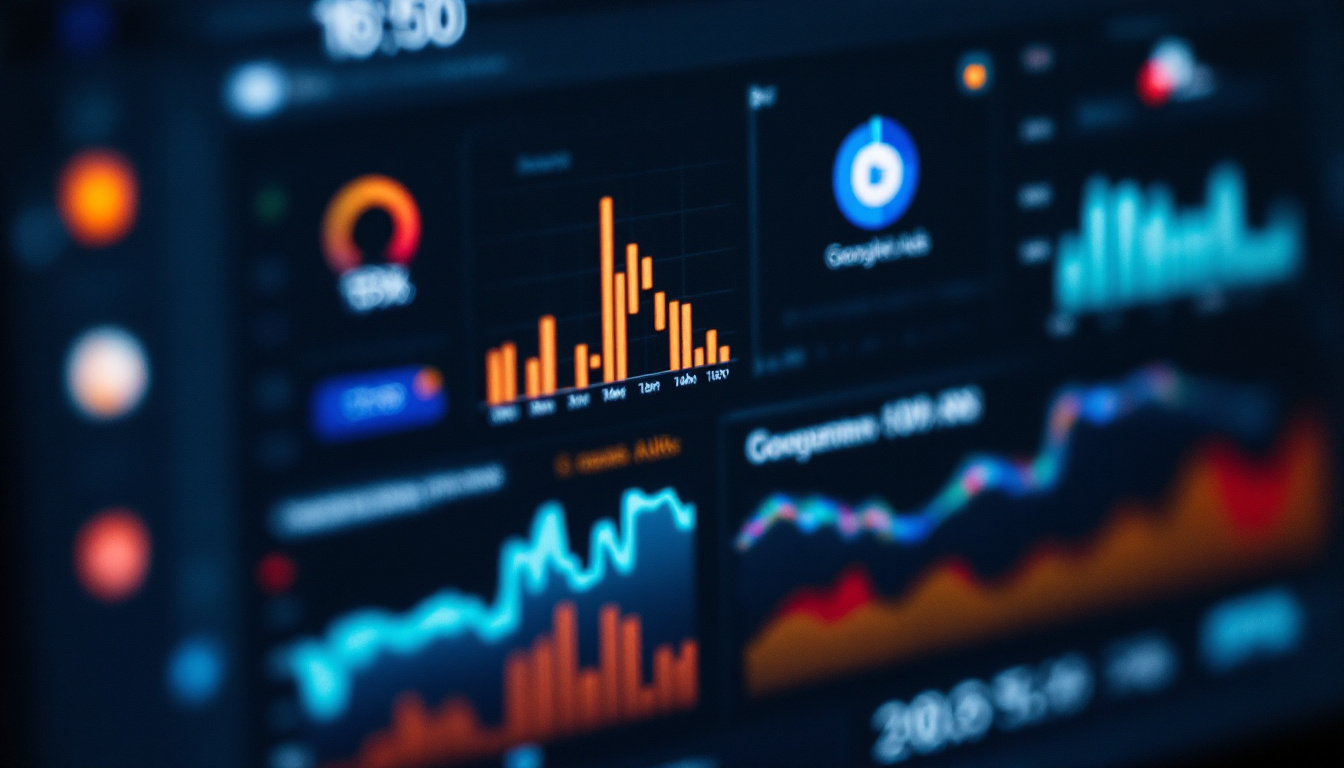What Denver, CO Businesses Should Know About Google Ads Updates

As Denver businesses navigate the ever-changing landscape of digital advertising, staying informed about Google Ads updates is crucial. With the ongoing evolution of online marketing strategies, businesses must adapt to new features and changes to maintain their competitive edge. This article explores the latest updates from Google Ads and how Denver businesses can effectively leverage them.
Understanding the latest Google Ads updates
Google frequently rolls out updates to its Ads platform, aimed at improving user experience, enhancing targeting options, and optimizing ad performance. Understanding these updates is essential for businesses that rely on pay-per-click (PPC) advertising to drive traffic and conversions.
Recent updates have included advancements in machine learning capabilities, new ad formats, and changes in keyword targeting. Familiarizing yourself with these changes allows businesses to tap into innovative features that can drive better results for their marketing efforts.
Additionally, monitoring how Google prioritizes certain types of ads can help businesses adjust their strategies accordingly. For instance, the introduction of responsive search ads encourages advertisers to embrace flexibility in their campaigns. This dynamic approach may prove beneficial, especially in a competitive market like Denver.
Major updates to pay attention to
Some key updates that businesses should note include:
- Performance Max campaigns: A new campaign type that uses automation across all Google inventory for better performance.
- Enhanced targeting options: Improvements in audience targeting, including in-market audiences and demographics.
- Privacy updates: Changes that affect tracking, making it vital to adapt to a cookie-less future.
By staying informed about these updates, businesses can proactively adjust their PPC strategies to maintain effective advertising campaigns.
Moreover, the shift towards automation in Google Ads signifies a broader trend in digital marketing, where machine learning is becoming increasingly integral to campaign management. This means that advertisers must not only understand how to utilize these automated features but also how to interpret the data generated by them. For instance, Performance Max campaigns leverage AI to optimize ad placements across various Google channels, including Search, Display, YouTube, and Gmail, thereby maximizing reach and engagement without requiring constant manual adjustments.
Furthermore, the enhanced targeting options introduced in recent updates allow businesses to create more personalized ad experiences. By utilizing in-market audiences, advertisers can reach users who are actively searching for products or services similar to theirs, while demographic targeting enables them to tailor their messages based on age, gender, and location. This level of precision can significantly improve conversion rates, making it essential for businesses to explore these options thoroughly and align them with their overall marketing objectives.
How updates impact your PPC strategy
The implications of Google Ads updates on PPC strategies are significant. Businesses must understand how these changes affect their ad placements, bidding strategies, and overall campaign effectiveness.

Updates can lead to shifts in ad performance metrics. For example, improved machine learning capabilities may optimize your ad delivery and targeting, resulting in higher click-through rates (CTR) and lower costs per click (CPC). Conversely, privacy updates may require businesses to rethink how they collect and leverage user data. This could mean investing in new technologies or methodologies for data collection, ensuring compliance with regulations while still gaining valuable insights into customer behavior.
Furthermore, updates such as the introduction of Performance Max campaigns could reshape your budget allocation strategies. These campaigns combine multiple ad formats and settings into one, allowing for broader reach and better performance. With the ability to serve ads across various Google channels, including YouTube, Display, and Search, businesses can maximize their visibility and engagement with potential customers, making it essential to monitor and adjust budgets accordingly to capitalize on these opportunities.
Adjusting your PPC strategy accordingly
To adapt, consider the following strategies:
- Regularly review performance metrics to identify impacts from recent updates.
- Test new ad formats and automated features to determine their effectiveness.
- Revisit your audience targeting settings to align with newly available options.
By implementing these tactics, Denver businesses can navigate the changing landscape of Google Ads effectively. Additionally, staying informed about industry trends and participating in relevant webinars or forums can provide insights into how other businesses are adapting their PPC strategies. Engaging with a community of PPC professionals can also foster collaboration and the sharing of best practices, which can be invaluable in fine-tuning your approach to the ever-evolving digital advertising landscape.
Moreover, consider leveraging advanced analytics tools to gain deeper insights into your campaign performance. These tools can help you track user interactions across different platforms, allowing for a more granular understanding of how updates are influencing consumer behavior. By analyzing this data, you can make more informed decisions about where to allocate your resources, ultimately enhancing the effectiveness of your PPC campaigns in a competitive market.
Adapting campaigns to new Google features
In order to harness the full potential of Google Ads updates, adapting campaigns to incorporate new features is essential. Businesses must remain agile and open to experimenting with these innovations. Staying informed about the latest trends and updates in the digital advertising landscape can provide a competitive edge, allowing businesses to pivot quickly and effectively. Regularly attending webinars, reading industry blogs, and participating in forums can help marketers stay ahead of the curve and ensure that they are leveraging the most effective strategies available.
For instance, implementing Performance Max campaigns could be a game-changer for local Denver businesses seeking to maximize their visibility across different platforms. This feature allows advertisers to reach customers across Google's full range of advertisements, including display ads and search ads, from a single campaign. By consolidating efforts into one streamlined approach, businesses can not only save time but also gain insights into which channels are driving the most engagement. This holistic view can inform future marketing decisions and budget allocations, ultimately leading to more effective campaigns.
Moreover, new ad formats, such as video ads and Discovery ads, can help businesses engage potential customers in more dynamic ways. These formats cater to changing consumer behaviors and preferences, making them an essential part of any modern digital advertising strategy. Video ads, in particular, have gained traction due to their ability to convey messages quickly and memorably, tapping into the growing trend of video consumption on platforms like YouTube and social media. Discovery ads, on the other hand, allow brands to reach users who are actively exploring new products and services, creating a unique opportunity to capture interest at the right moment.
Testing and optimization
Testing different campaign elements, such as ad copy, visuals, and calls to action, allows businesses to optimize their approach continually. Regularly analyzing data from these tests helps in identifying what works best, ensuring that campaigns remain effective and relevant. A/B testing can be particularly valuable, as it enables marketers to compare two versions of an ad to see which performs better, providing actionable insights that can be applied to future campaigns. This iterative process fosters a culture of experimentation, encouraging teams to innovate and refine their strategies based on real-world performance.
Utilizing Google’s responsive search ads feature is also crucial. This feature allows marketers to input multiple headlines and descriptions, enabling Google’s algorithm to determine the best combinations that resonate with users. As such, embracing flexibility can lead to improved campaign performance. Additionally, incorporating audience targeting options, such as remarketing lists and in-market audiences, can further enhance the effectiveness of responsive ads. By tailoring messages to specific segments of the audience, businesses can create more personalized experiences that drive engagement and conversions, making every interaction count in an increasingly competitive digital landscape.
The role of automation in modern PPC campaigns
Automation has become a pivotal component in the realm of PPC advertising. With the introduction of automated bidding strategies, businesses are now able to optimize their bids in real time based on various signals.
Automated tools not only save time but also allow for more effective ad placements. This is particularly beneficial for Denver businesses with tight marketing budgets, as having smarter bids means more efficient spending.
However, it’s important to acknowledge that automation should complement, not replace, human oversight. While automation can manage routine tasks and optimize performance, strategic input from marketing teams remains essential for ensuring campaigns align with overall business goals.
Balancing automation with human strategy
To maintain a successful balance between automation and human strategy, consider the following:
- Establish clear objectives to guide your automated campaigns.
- Regularly audit your campaigns to ensure that automated systems are performing as expected.
- Stay informed about updates and new automation features released by Google.
By incorporating a well-rounded approach, Denver businesses can effectively leverage automation while maintaining control over their PPC strategies.
Key takeaways from recent Google Ads changes
As we conclude our exploration of Google Ads updates, several key takeaways emerge for Denver businesses looking to strengthen their PPC campaigns.

First, staying informed about the latest updates is not just advantageous; it’s essential. Regularly checking in on Google Ads announcements and updates can help you anticipate and respond to changes quickly.
Second, embracing automation and new campaign types can lead to significant improvements in your ad performance. The introduction of features such as Performance Max campaigns not only streamlines advertising efforts but can also unlock new opportunities for customer engagement.
Finally, ongoing testing and optimization should be integral to your strategy. The digital landscape is dynamic, and consistently refining your approach will ensure that your campaigns remain effective in driving traffic and conversions.
In summary, by understanding and adapting to Google Ads updates, Denver businesses can capitalize on new opportunities and maintain their competitive edge in the digital advertising arena.

As a Google Ads expert, I bring proven expertise in optimizing advertising campaigns to maximize ROI.
I specialize in sharing advanced strategies and targeted tips to refine Google Ads campaign management.
Committed to staying ahead of the latest trends and algorithms, I ensure that my clients receive cutting-edge solutions.
My passion for digital marketing and my ability to interpret data for strategic insights enable me to offer high-level consulting that aims to exceed expectations.





























